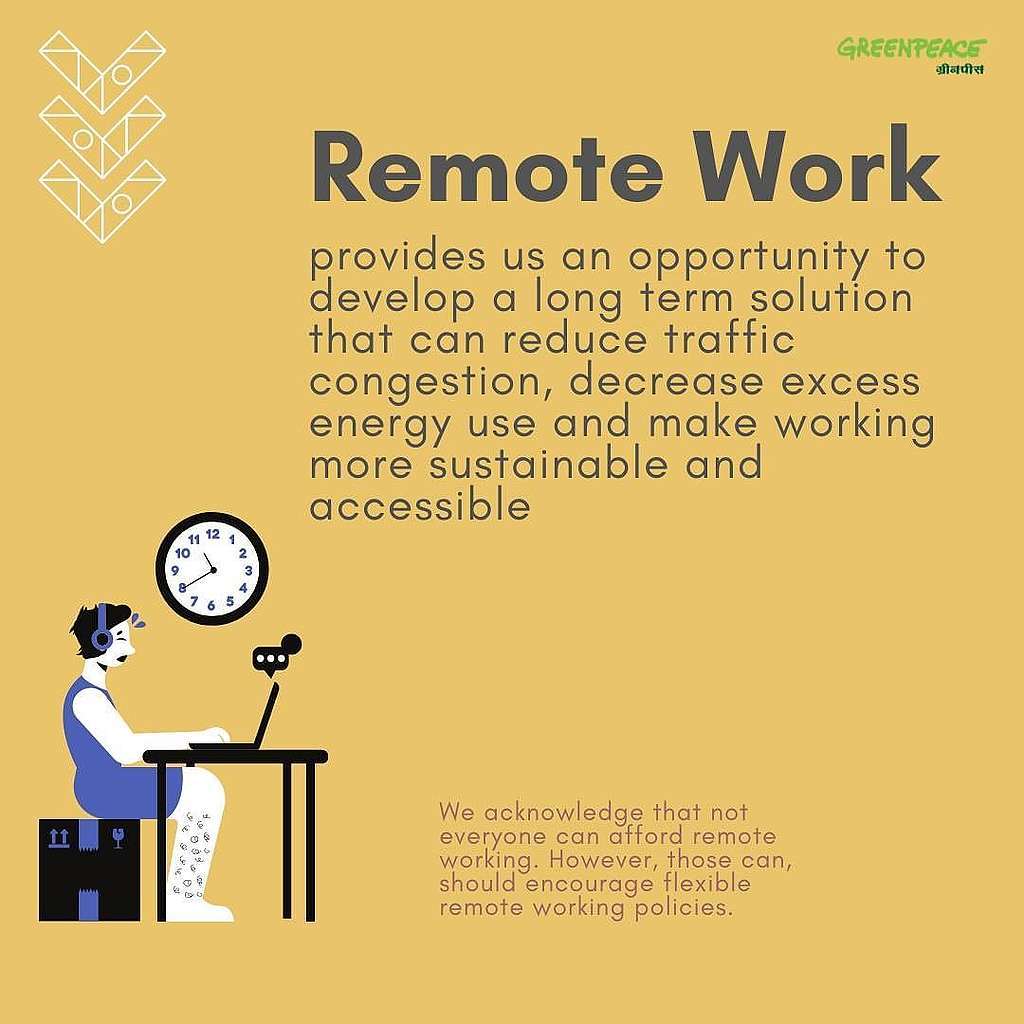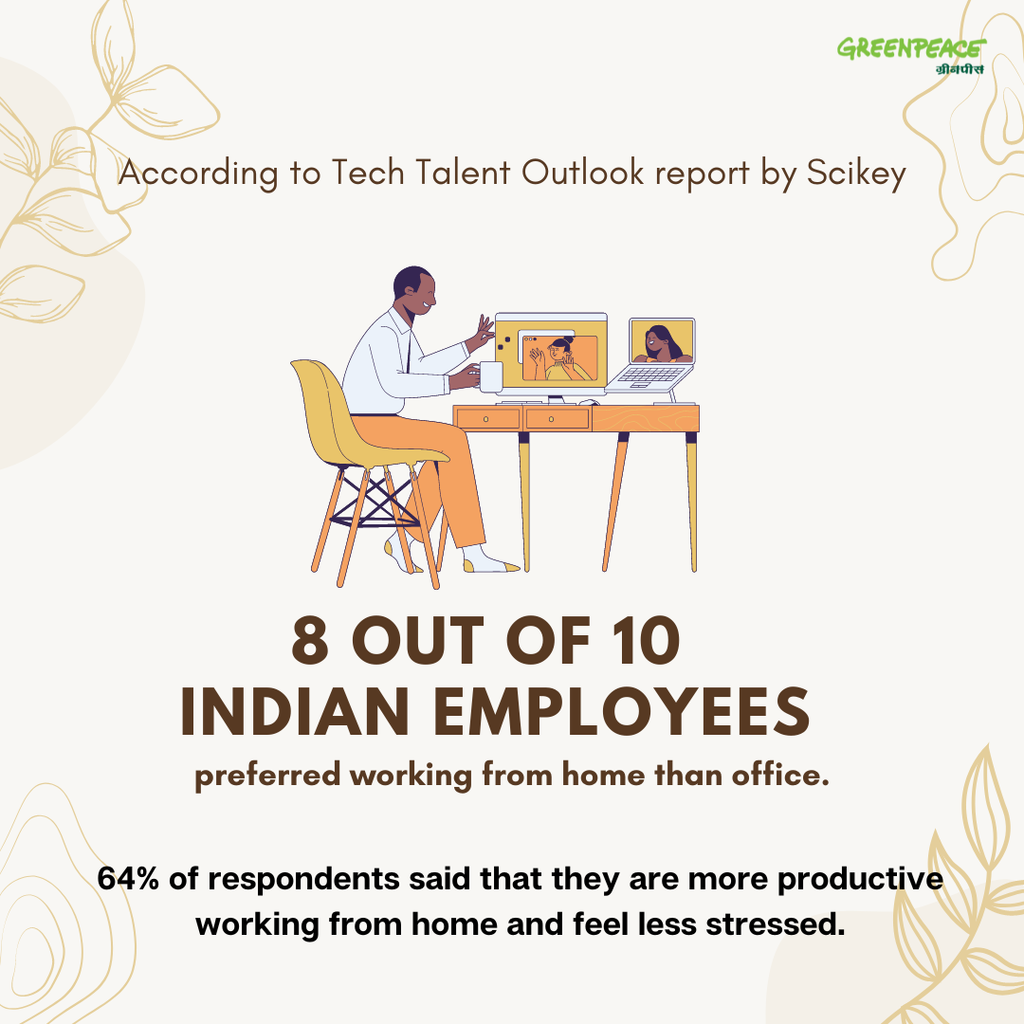An unlikely new weapon has emerged in the fight against climate change – Flexible Working.
India’s urban population is projected to rise in the coming years. Coupled with poor infrastructure, a larger population inevitably brings traffic congestion and rapid rise in air pollution levels. An efficient public transport system and better infrastructure for cyclists and pedestrians can combat this crisis, but we have a new ace at hand.

Flexible work policies can cut India’s carbon emissions by 1,81,000 tonnes PER YEAR.

Studies have found that implementing flexible remote working options even for just a few days a week can reduce air pollutant levels by 10%. This is not surprising, given that motorized vehicles are one of the largest contributors to air pollution in cities. For example, Bengaluru has over 67,000 registered IT companies and over 80 lakh registered vehicles. If even a fraction of these companies execute flexi-working policies, it can have a drastic impact on air pollution levels.
Greenpeace India has been keeping a track of companies in India that are leading efforts to make flexi-work a norm. The performance of the evaluated companies is mapped on our leaderboard – Let’s Flex It! Through the Leaderboard, we examine how IT companies are changing the narrative around remote work, implementing long-term flexi-work policies and having a direct impact on traffic congestion and emissions in our cities.

Let’s Flex It aims to prove that flexi-working policies are possible, through which we can help combat congestion and emission on our streets. Our goal is to track contributions of India’s companies in creating more accessible, healthy and sustainable workplaces. By the end of 2022, we aim to bring onboard at least 5 more companies to draft flexible work policies, which could bring down as many as 10,000 fossil fuel run vehicles during peak hours.
So, shall we Flex It?
